Bearing Pipes
Pipes designed for bearing loads, offering high strength and durability.
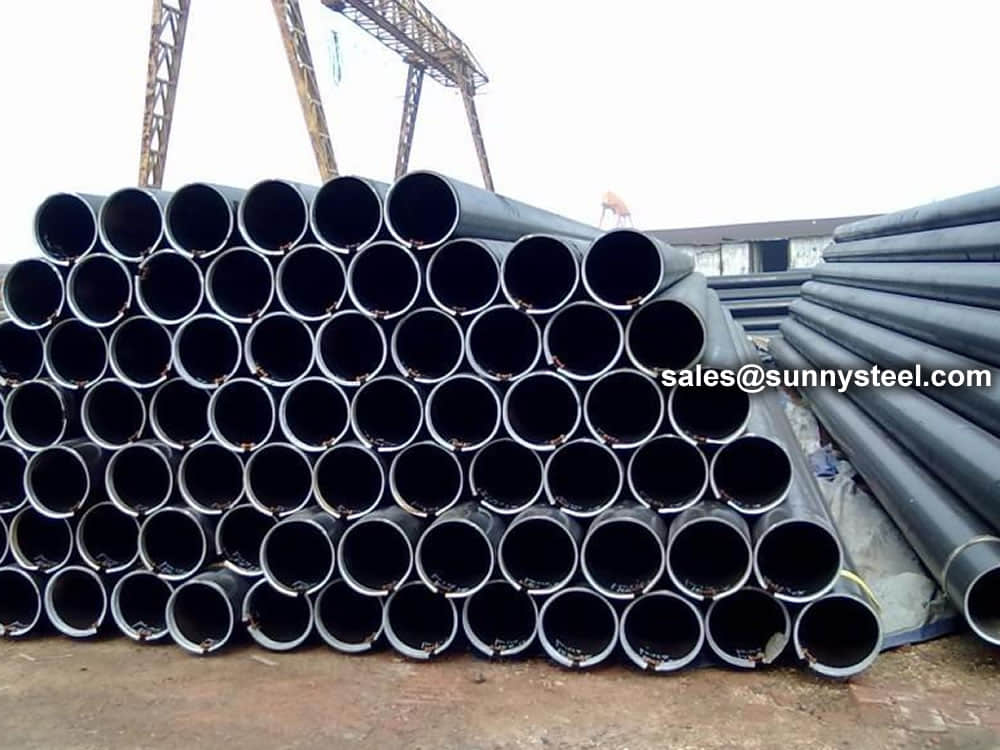
GB 6479 specification covers seamless steel pipes for high-pressure fertilizer equipment and pipelines, and also for other chemical equipment.
GB 6479 is a Chinese standard that specifies the technical requirements for seamless steel tubes used in high-pressure chemical fertilizer equipment. It covers various grades of steel, including carbon structural steel and alloy steel.
The GB 6479 standard, officially known as GB 6479—2013 Seamless steel tubes for high-pressure chemical fertilizer equipments, is a national standard of the People's Republic of China that aims to regulate the production, inspection, and application of seamless steel tubes used in high-pressure fertilizer equipment. This standard was published on September 18, 2013, and was implemented on July 1, 2014, by the General Administration of Quality Supervision, Inspection and Quarantine of the People's Republic of China and the Standardization Administration of China.
The GB 6479 standard is primarily applicable to seamless steel tubes used in high-pressure fertilizer equipment and pipelines. It also applies to seamless steel tubes used in other chemical equipment. This standard ensures the safety and reliability of seamless steel tubes in high-pressure fertilizer equipment, which is of great significance to the safe production of the chemical industry.
The GB 6479 standard provides detailed specifications for the dimensions, shape, weight, technical requirements, testing methods, inspection rules, packaging, marking, and quality certificates of high-pressure fertilizer equipment and pipeline seamless steel tubes. These specifications provide clear technical guidance for the production and inspection of seamless steel tubes, ensuring the quality and consistency of the products.
The technical requirements of the GB 6479 standard include the chemical composition, mechanical properties, process performance, and surface quality of the steel tubes. These requirements ensure that the steel tubes can maintain long-term stable performance under the harsh working conditions of high-pressure fertilizer equipment.
The GB 6479 standard strictly regulates the size specifications and tolerances of seamless steel tubes to ensure their applicability and interchangeability. The size specifications mainly include the outer diameter and wall thickness of the steel tubes, which determine their pressure-bearing capacity and processing adaptability.
The GB 6479 standard stipulates a variety of inspection methods to ensure the quality of seamless steel tubes meets the requirements of high-pressure fertilizer equipment. These inspection methods include chemical composition analysis, mechanical property testing, non-destructive testing, and more.
According to the GB 6479 standard, the packaging, marking, and storage of seamless steel tubes are required to protect the quality of the tubes during transportation and storage and to provide a basis for users to identify and verify the products.
The formulation and implementation of the GB 6479 standard have a profound impact on China's chemical equipment manufacturing industry. It not only standardizes the production and inspection process of seamless steel tubes for high-pressure fertilizer equipment but also ensures the safety and reliability of chemical equipment.
| Grade | C | Si | Mn | Cr | Mo | V | W | Nb | Ni | P S(No More Than) | |
|---|---|---|---|---|---|---|---|---|---|---|---|
| 10 | 0. 07-0. 13 | 0. 17 -0. 37 | 0.35 -0. 65 | - | - | - | - | - | - | 0.025 | 0.015 |
| 20 | 0. 17 -0. 23 | 0.17 -0. 37 | 0. 35-0.65 | - | - | - | - | - | - | 0.025 | 0.015 |
| Q345Ba | 0. 12 -0. 20 | 0.20-0. 50 | 1.20-1.70 | <0. 30 | <0. 10 | Mis | - | <0.07 | W0. 50 | 0.025 | 0.015 |
| Q345C" | 0. 12 -0. 20 | 0.20 -0. 50 | 1.20 -1. 70 | W0. 30 | <0. 10 | <0. 15 | - | W0.07 | <0. 50 | 0.025 | 0.015 |
| Q345D" | 0. 12 -0. 18 | 0.20 -0. 50 | 1. 20-1.70 | W0. 30 | <0. 10 | <0. 15 | - | W0.07 | <0. 50 | 0. 025 | 0.015 |
| Q345Ea*B | 0. 12 -0. 18 | 0. 20-0. 50 | 1. 20 -1.70 | W0. 30 | <0. 10 | <0. 15 | - | <0.07 | <0. 50 | 0. 025 | 0.01 |
| 12CrMo | 0. 08-0. 15 | 0.17 -0. 37 | 0. 40-0. 70 | 0. 40-0. 70 | 0. 40-0. 55 | - | - | - | - | 0. 025 | 0.015 |
| 15CrMo | 0. 12 -0. 18 | 0. 17 -0. 37 | 0. 40-0. 70 | 0. 80-1. 10 | 0. 40-0.55 | - | - | - | - | 0. 025 | 0. 015 |
| 12Cr2Mo | 0. 08-0. 15 | <0. 50 | 0. 40-0.6 | 2.00-2. 50 | 0. 90-1. 13 | - | - | - | - | 0.025 | 0. 015 |
| 12Cr5Mo | <0. 15 | <0.50 | <0. 60 | 4. 00-6.00 | 0. 40-0. 60 | - | - | - | <0. 60 | 0. 025 | 0. 015 |
| LOMoWVNb | 0. 07-0. 13 | 0. 50-0.8 | 0. 50-0.8 | - | 0. 60-0. 90 | 0. 30-0. 50 | 0. 50-0. 90 | 0. 06-0. 12 | - | 0.025 | 0.015 |
| 12SiMoVNb | 0.08 -0. 14 | 0.50 -0.8 | 0. 60-0. 90 | - | 0. 90-1. 10 | 0. 30-0. 50 | - | 0. 04-0.08 | - | 0.025 | 0.015 |
Awhen It Is Necessary To Add Fine Grain Elements, The Steel Shall Contain At Least One Of Al, Nb, V And Ti. The Added Fine Grain Elements Shall Be Indicated In The Quality Certificate. Ti Content Shall Not Be More Than 0.20%
BAl Content In Steel Shall Not Be Less Than 0.020%, Or Ala Content In Steel Shall Not Be Less Than 0.015%
| Grade | Tensile (MPa) | Yield (MPa) | Elong After Fracture A/% | Reduction Of Area (Z/%) | Shork Absorption Energy (KV2)/J |
|||||
|---|---|---|---|---|---|---|---|---|---|---|
| Steel Tube Wall Thickness/Mm | Test Temperature/℃ | Portrait | Transver | |||||||
| W16 | >16 — 40 | >40 | Portrait | Transver | ||||||
| Not Less Than | Not Less Than | |||||||||
| 10 | 335-490 | 205 | 195 | 185 | 24 | 22 | 一 | 一 | — | 一 |
| 20 | 410-550 | 245 | 235 | 225 | 24 | 22 | 一 | 0 | 40 | 27 |
| Q345B | 490-670 | 345 | 335 | 325 | 21 | 19 | 一 | 20 | 40 | 27 |
| Q345C | 490-670 | 345 | 335 | 325 | 21 | 19 | 一 | 0 | 40 | 27 |
| Q345D | 490-670 | 345 | 335 | 325 | 21 | 19 | 一 | -20 | 40 | 27 |
| Q345E | 490-670 | 345 | 335 | 325 | 21 | 19 | — | -40 | 40 | 27 |
| 12CrMo | 410-560 | 205 | 195 | 185 | 21 | 19 | — | 20 | 40 | 27 |
| 15CrMo | 440-640 | 295 | 285 | 275 | 21 | 19 | 一 | 20 | 40 | 27 |
| 12Cr2Moa | 450-600 | 280 | 20 | 18 | 一 | 20 | 40 | 27 | ||
| 12Cr5Mo | 390-590 | 195 | 185 | 175 | 22 | 20 | 一 | 20 | 40 | 27 |
| LOMoWVNb | 470-670 | 295 | 285 | 275 | 19 | 17 | 一 | 20 | 40 | 27 |
| 12SiMoVNb | 2470 | 315 | 305 | 295 | 19 | 17 | 50 | 20 | 40 | 27 |
GB6479 steel pipe is mainly used for high-pressure fertilizer equipment and seamless steel pipe for pipelines.
Executive standard: GB6479-2013
Product Name: Seamless steel pipe for high pressure fertilizer
Steel grade:10, 20, Q345B/C/D/E, 12CrMo, 15CrMo, 12Cr2Mo, 12Cr5Mo, 10MoWVNb, 12SiMoVNb, etc.

GB seamless steel pipes are available from various manufacturers and suppliers in China. They come in different sizes, grades, and surface finishes to meet specific project requirements.
According to incomplete statistics, there are more than 240 national standard steel pipe production enterprises and more than 250 seamless steel pipe units.
| Steel Grade | Chemistry Constitute | |||||||||
|---|---|---|---|---|---|---|---|---|---|---|
| C | Si | Mn | Cr | Ni | Mo | P | S | Ti | Cu | |
| Q195 | 0.06-0.12 | ≤0.30 | 0.25-0.50 | ≤0.3 | ≤0.3 | - | ≤0.045 | ≤0.050 | - | ≤0.30 |
| Q235 | 0.14-0.22 | ≤0.30 | 0.30-0.65 | ≤0.3 | ≤0.3 | - | ≤0.045 | ≤0.050 | - | ≤0.30 |
| Q345B | ≤0.20 | ≤0.55 | 1.00-1.60 | - | - | - | ≤0.040 | ≤0.040 | - | - |
| 10# | 0.07-0.13 | 0.07-0.37 | 0.35-0.65 | ≤0.15 | ≤0.3 | - | ≤0.035 | ≤0.035 | - | ≤0.25 |
| 20# | 0.17-0.23 | 0.07-0.37 | 0.35-0.65 | ≤0.25 | ≤0.3 | - | ≤0.035 | ≤0.035 | - | ≤0.25 |
| 35# | 0.32-0.39 | 0.07-0.37 | 0.50-0.80 | ≤0.25 | ≤0.3 | - | ≤0.035 | ≤0.035 | - | ≤0.25 |
| 45# | 0.42-0.50 | 0.07-0.37 | 0.50-0.80 | ≤0.25 | ≤0.3 | - | ≤0.035 | ≤0.035 | - | ≤0.25 |
| 20Cr | 0.18-0.24 | 0.07-0.37 | 0.50-0.80 | 0.70-1.00 | ≤0.3 | - | ≤0.035 | ≤0.035 | - | ≤0.30 |
| 40Cr | 0.37-0.44 | 0.07-0.37 | 0.50-0.80 | 0.80-1.10 | ≤0.3 | - | ≤0.035 | ≤0.035 | - | ≤0.30 |
| 20CrMo | 0.17-0.24 | 0.07-0.37 | 0.40-0.70 | 0.80-1.10 | ≤0.3 | 0.15-0.25 | ≤0.035 | ≤0.035 | - | ≤0.30 |
| 30CrMo | 0.26-0.34 | 0.07-0.37 | 0.40-0.70 | 0.80-1.10 | ≤0.3 | 0.15-0.25 | ≤0.035 | ≤0.035 | - | ≤0.30 |
| 35CrMo | 0.32-0.40 | 0.07-0.37 | 0.40-0.70 | 0.80-1.10 | ≤0.3 | 0.15-0.25 | ≤0.035 | ≤0.035 | - | ≤0.30 |
| 42CrMo | 0.38-0.45 | 0.07-0.37 | 0.50-0.80 | 0.90-1.20 | 1.00-1.40 | 0.15-0.25 | ≤0.035 | ≤0.035 | - | ≤0.30 |
| 20CrMoTi | 0.17-0.23 | 0.07-0.37 | 0.40-0.70 | 0.45-0.75 | ≤0.3 | - | ≤0.035 | ≤0.035 | - | ≤0.30 |
| 35Mn2 | 0.32-0.39 | 0.07-0.37 | 1.40-1.80 | ≤0.3 | ≤0.3 | - | ≤0.035 | ≤0.035 | - | ≤0.30 |
| 40Mn2 | 0.37-0.44 | 0.07-0.37 | 1.40-1.80 | ≤0.3 | ≤0.3 | - | ≤0.035 | ≤0.035 | - | ≤0.30 |
| 35SiMn | 0.32-0.40 | 1.10-1.40 | 1.10-1.40 | ≤0.3 | ≤0.3 | - | ≤0.035 | ≤0.035 | - | ≤0.30 |
| 15Mn | 0.12-0.16 | 0.07-0.37 | 0.70-1.00 | ≤0.25 | ≤0.3 | - | ≤0.035 | ≤0.035 | - | ≤0.25 |
| 20Mn | 0.17-0.23 | 0.07-0.37 | 0.70-1.00 | ≤0.25 | ≤0.3 | - | ≤0.035 | ≤0.035 | - | ≤0.25 |
| Deviation level | Standardized outer diameter tolerance |
|---|---|
| D1 | ±1.5%,min ±0.75 mm |
| D2 | ±1.0%。min ±0.50 mm |
| D3 | ±0.75%.min±0.30 mm |
| D4 | ±0.50%。min ±0.10 mm |

With years of expertise, we provide a diverse array of steel tube processing options. From sawing and machining tube blanks to intricate bending and upsetting operations, we actively assist you throughout your projects.
Our capabilities extend to eccentricity reduction and concentricity enhancement through turning and grinding. We excel in creating complex geometries using processes like rotary swaging and axial forming. Additionally, we offer property modifications via partial heat treatment, ensuring tailored solutions for your specific needs.
Variable wall thicknesses
Drilling / stamping / lasering
Peeling / roller burnishing
Cold forming
Cutting
Beveling
Deburring
Thread rolling / threading
Partial hardening
Turning / milling / grinding
Reducing / expanding
Swing
Seamless steel pipe is regularly used in the transportation of fluids such as water, natural gas, waste and air. It is also regularly required in many high-pressure, high-corrosive environments such as in the oil & gas, power generation and pharmaceutical industries. Some common uses of seamless pipes include:
Chemical composition inspection, mechanical properties test(tensile strength,yield strength, elongation, flaring, flattening, bending, hardness, impact test), surface and dimension test,no-destructive test, hydrostatic test.
identification of the chemical composition of the metal used to manufacture the fitting. Uses PMI sensors, including X-ray fluorescence or optical emission spectrometry.
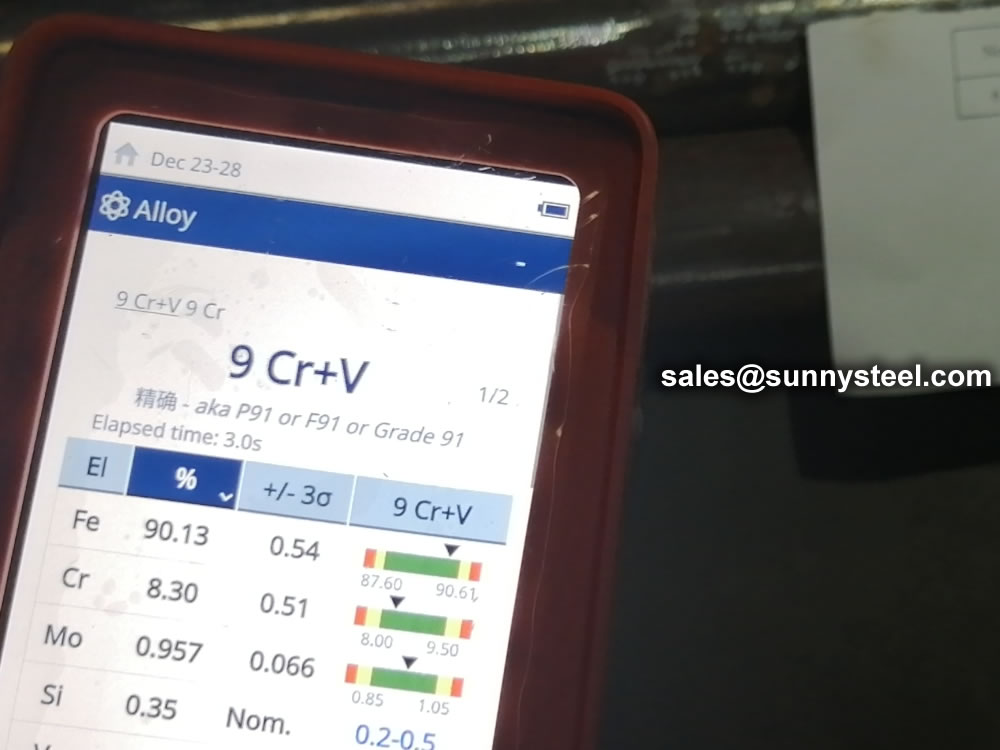
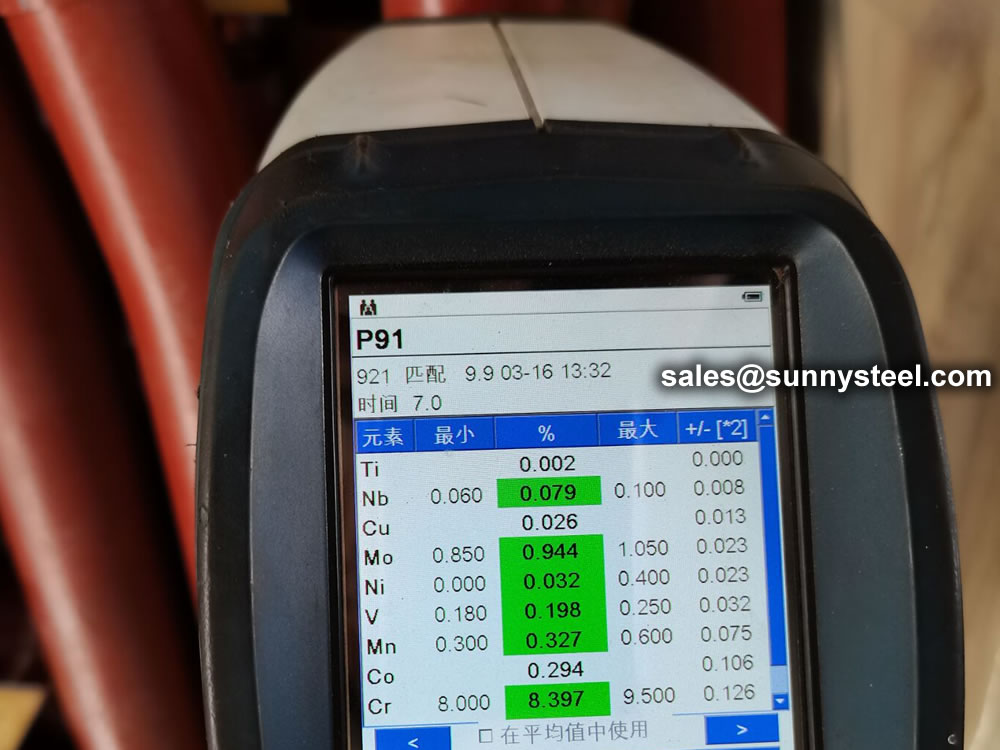
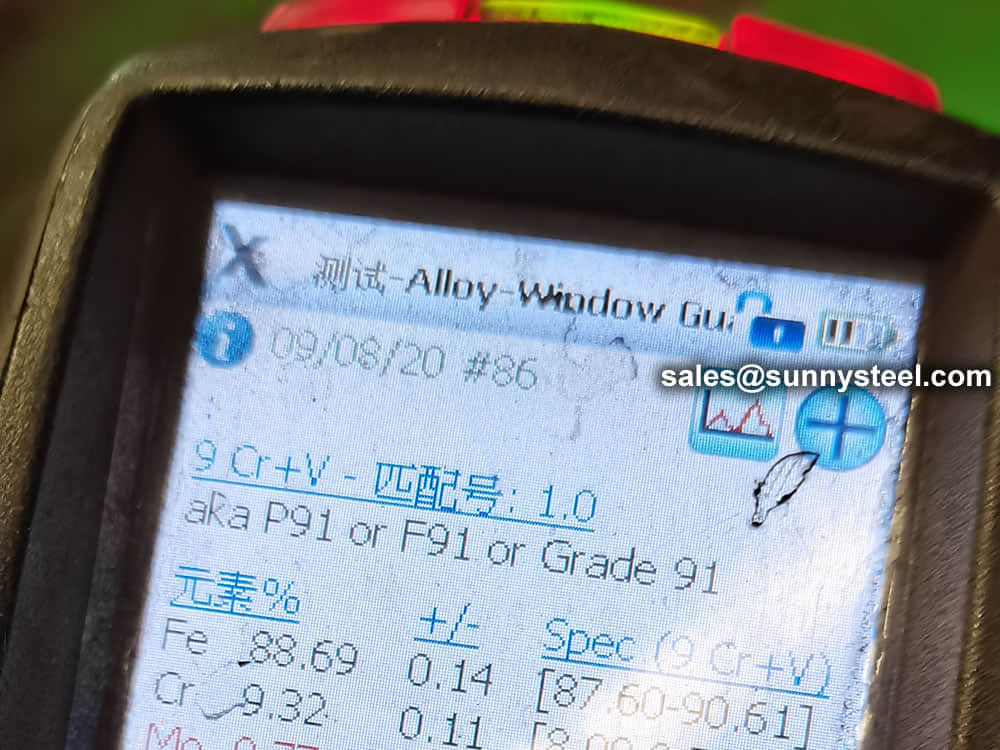
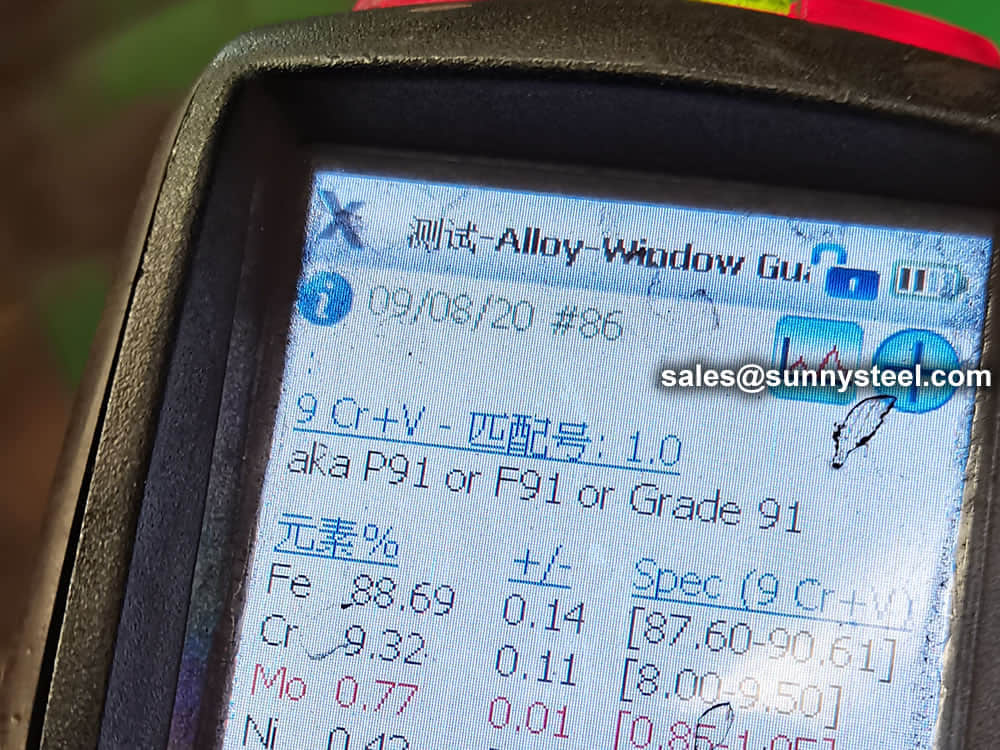
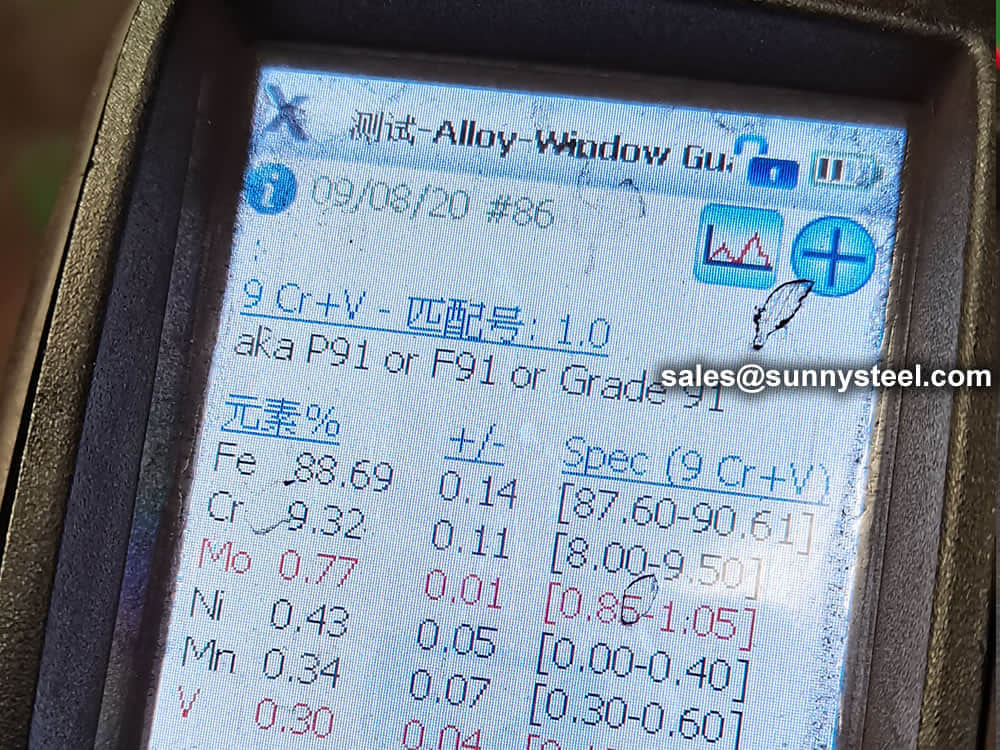

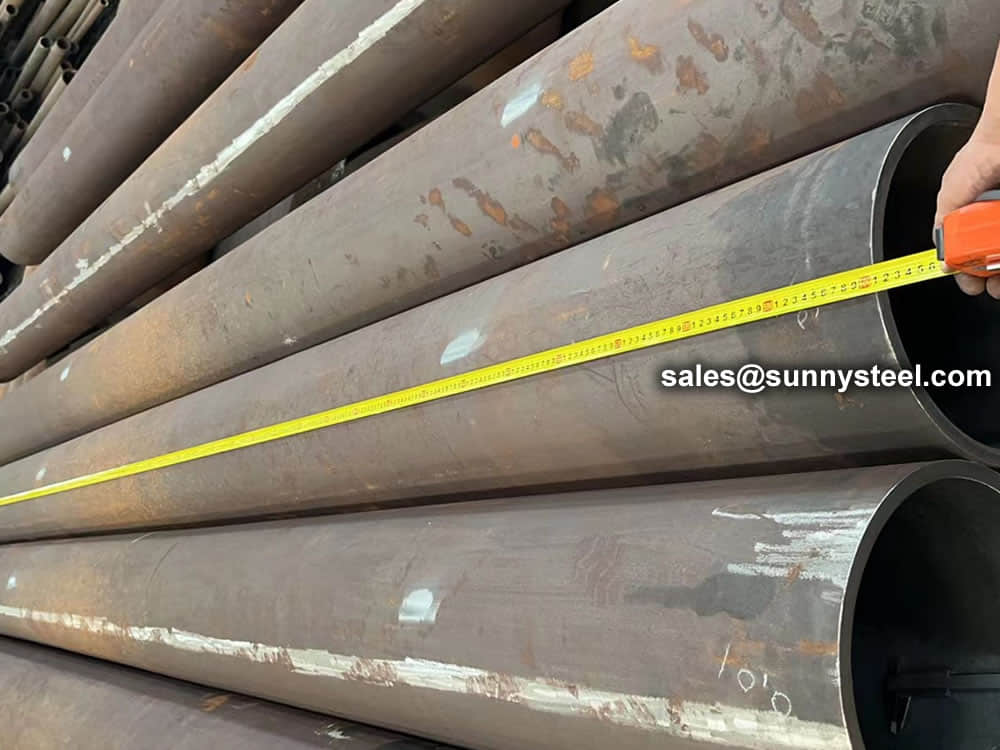
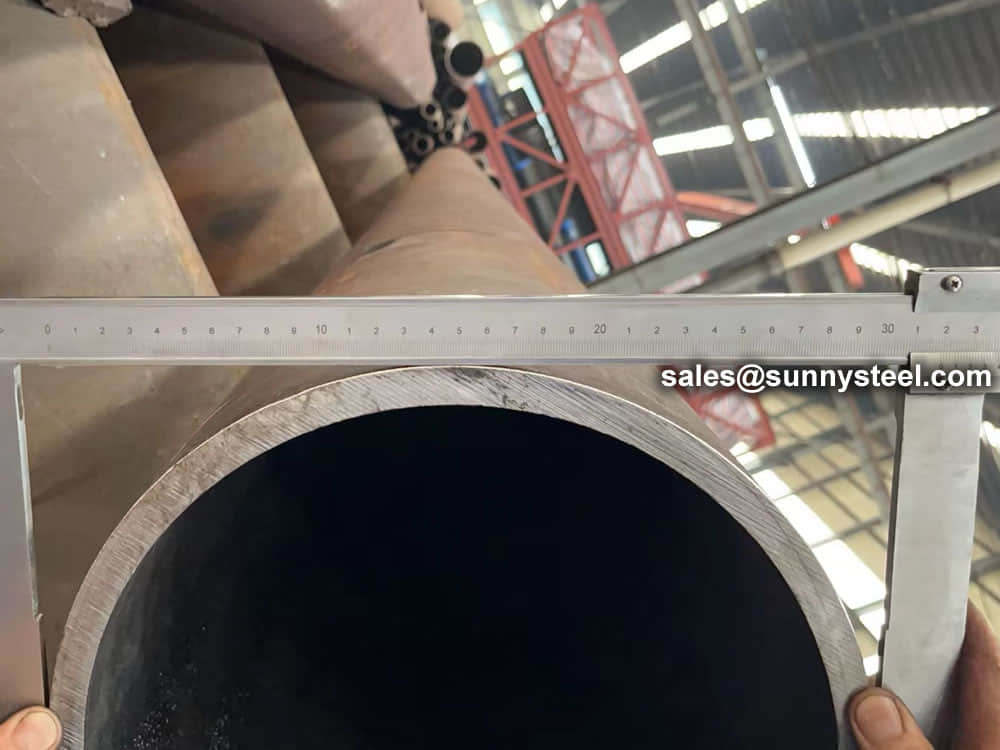
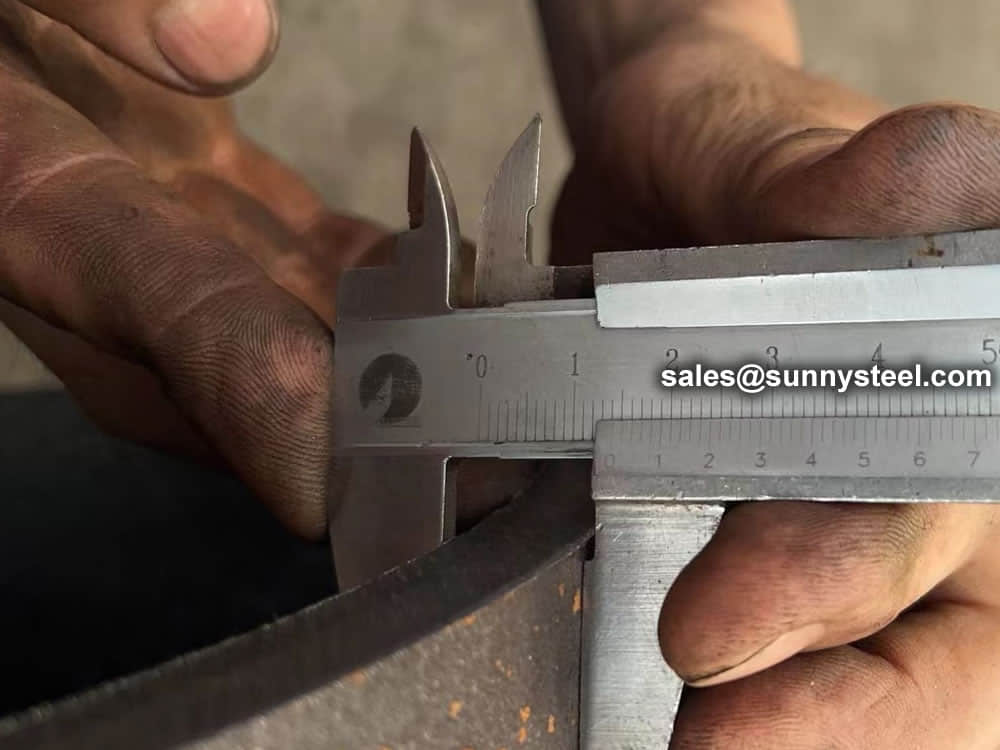
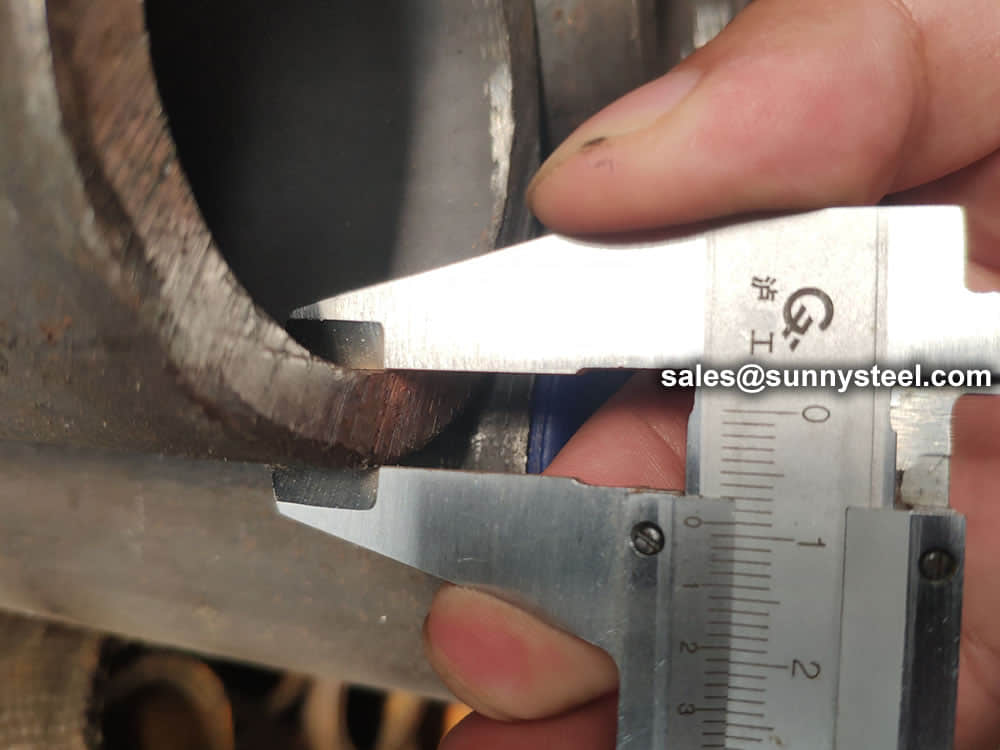
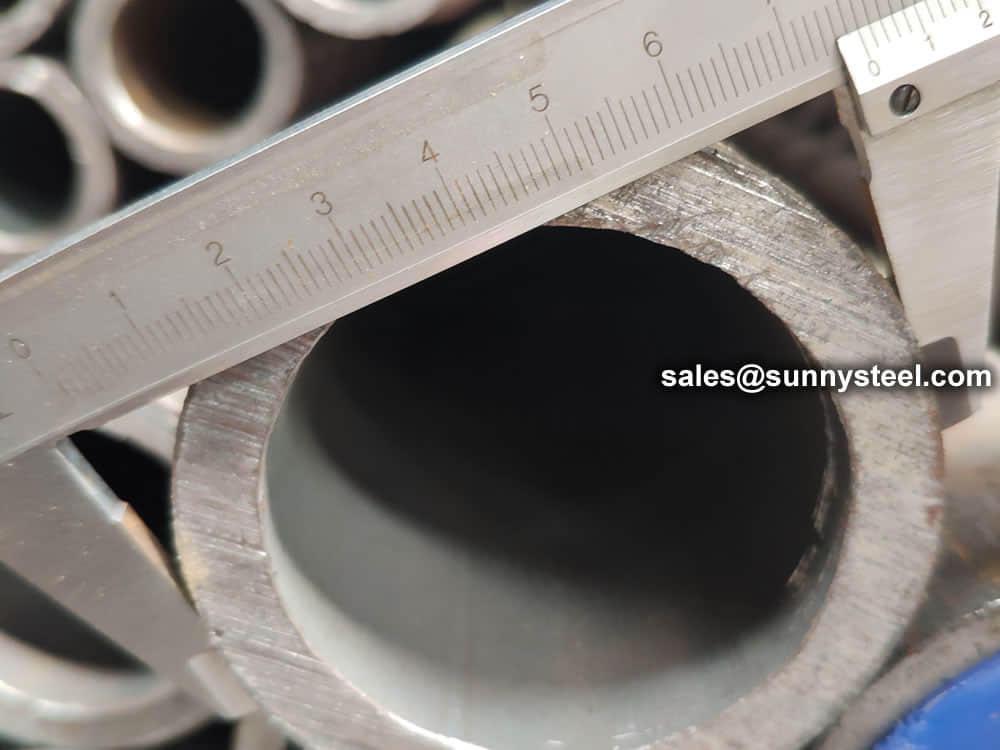
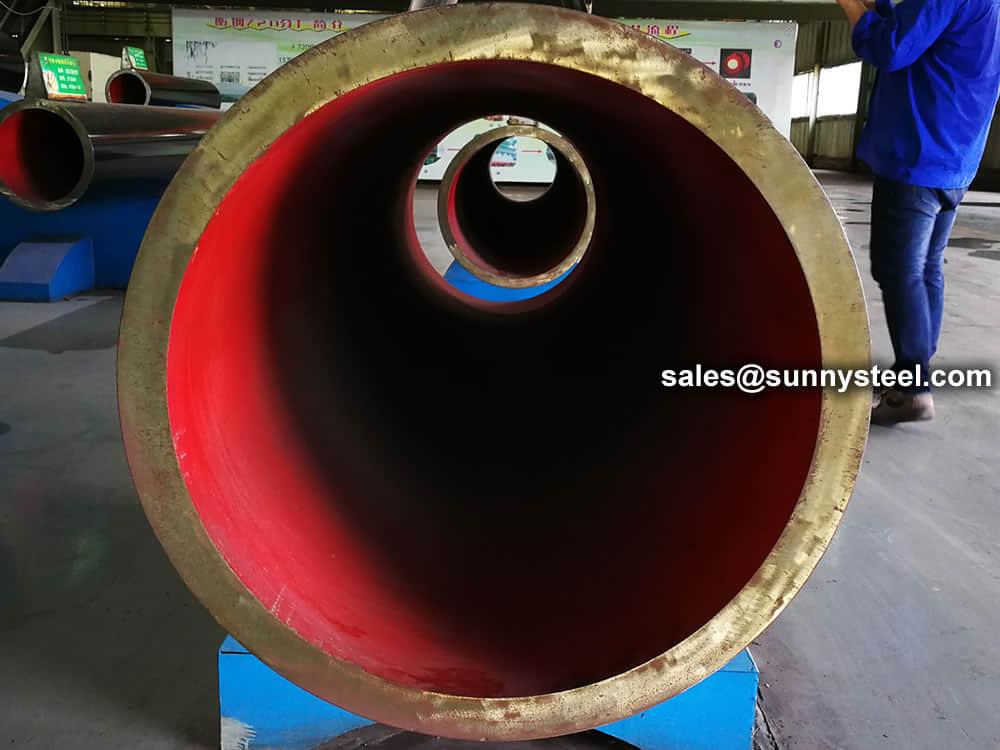
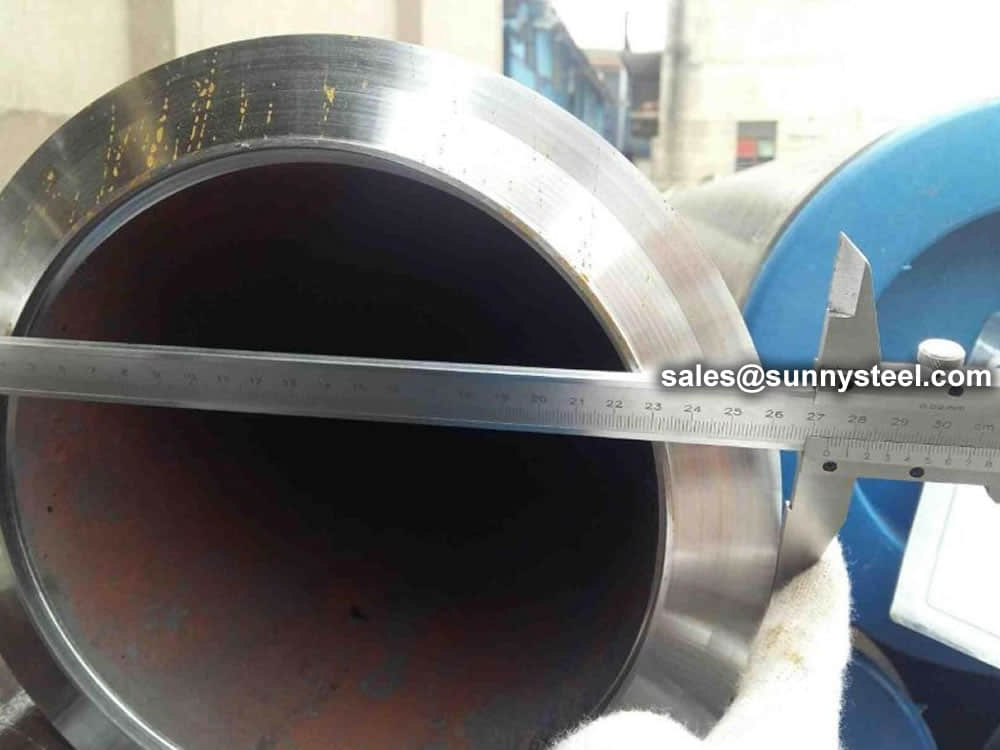
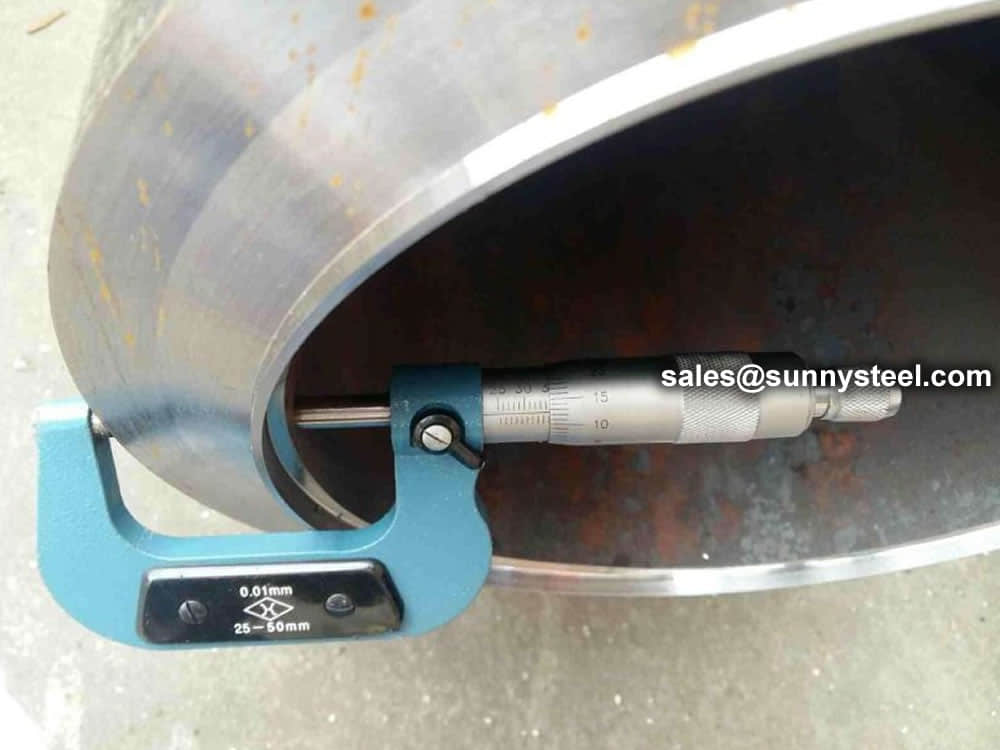
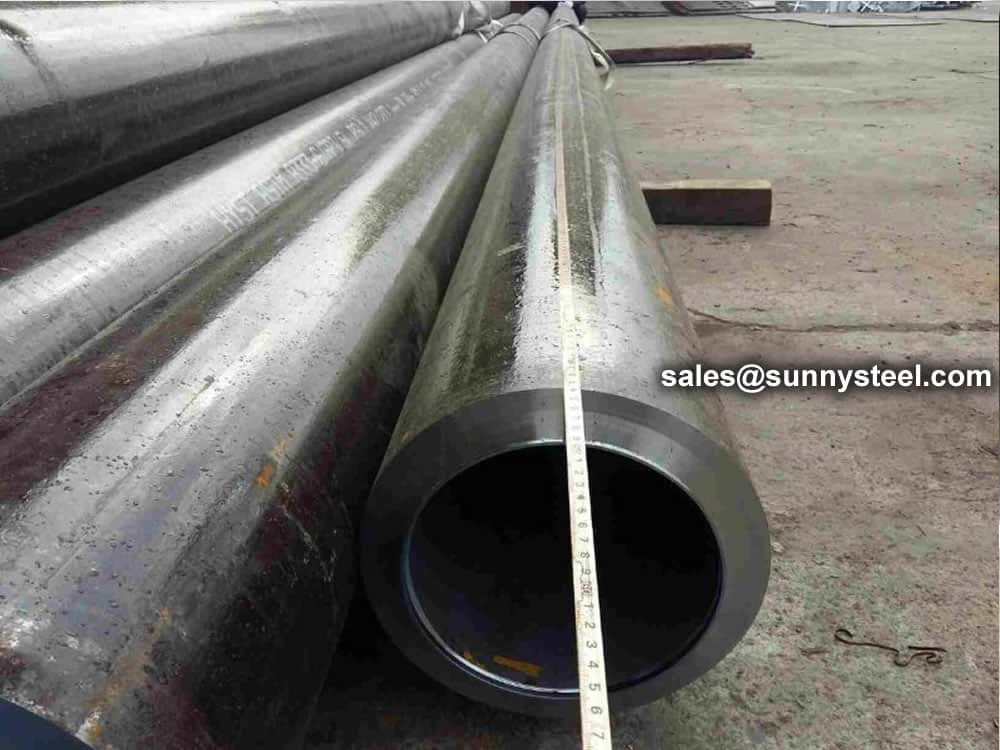
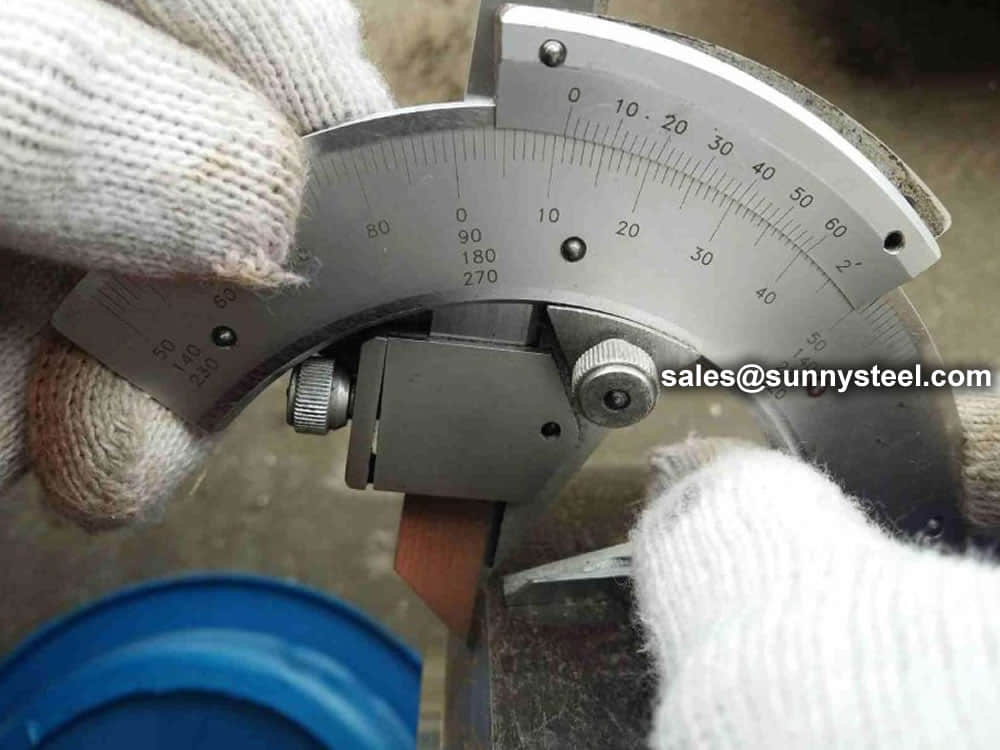
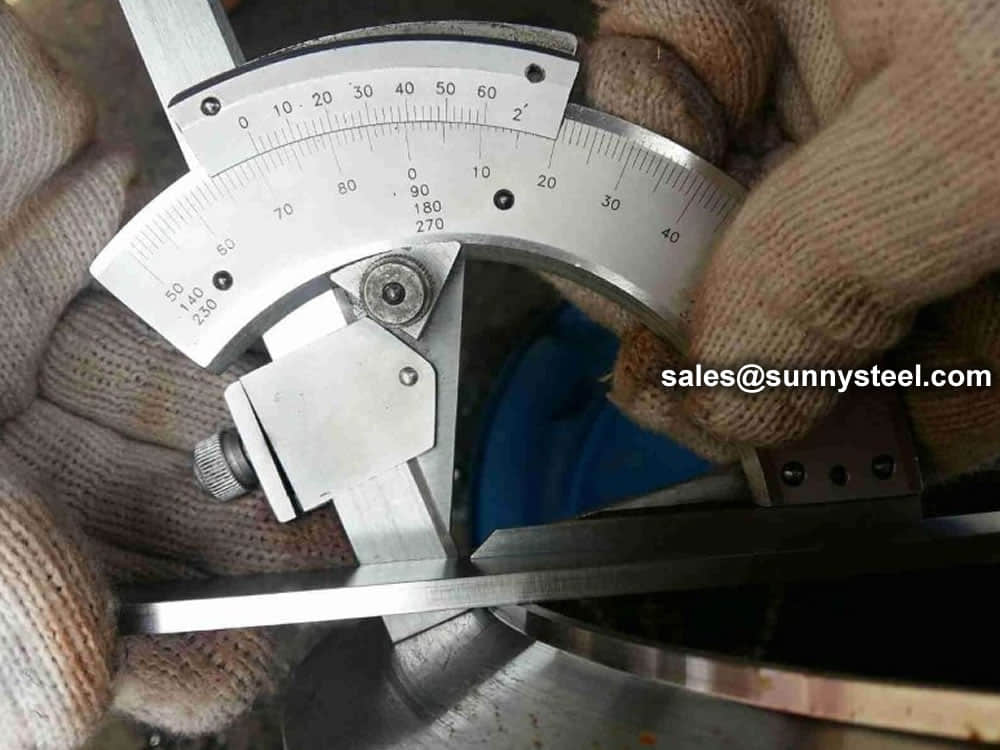
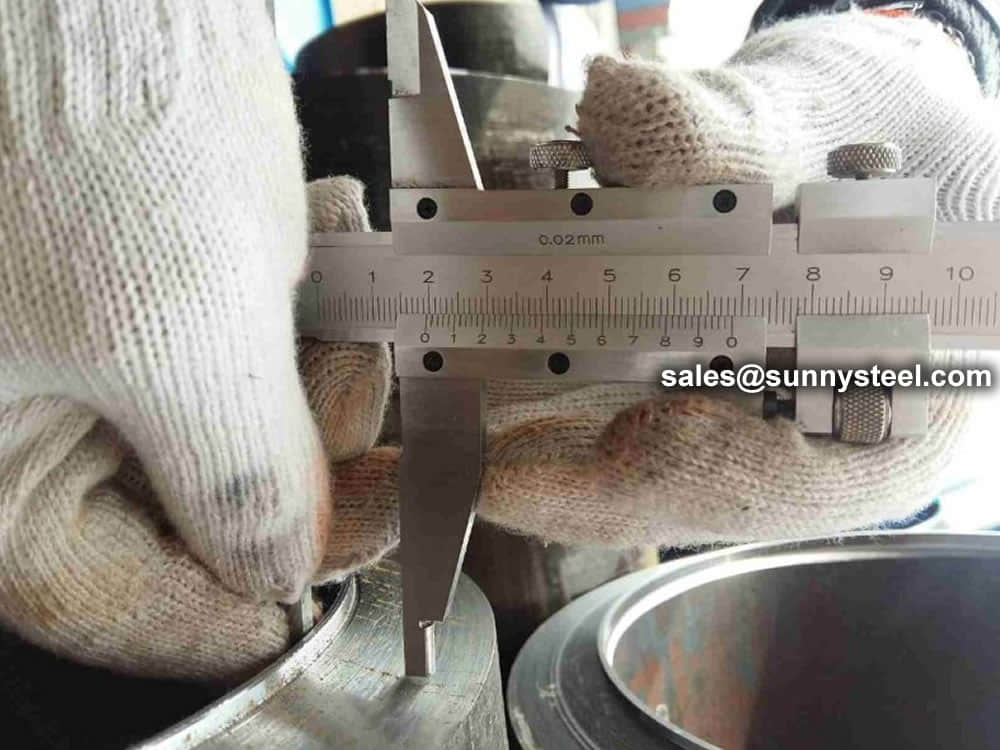
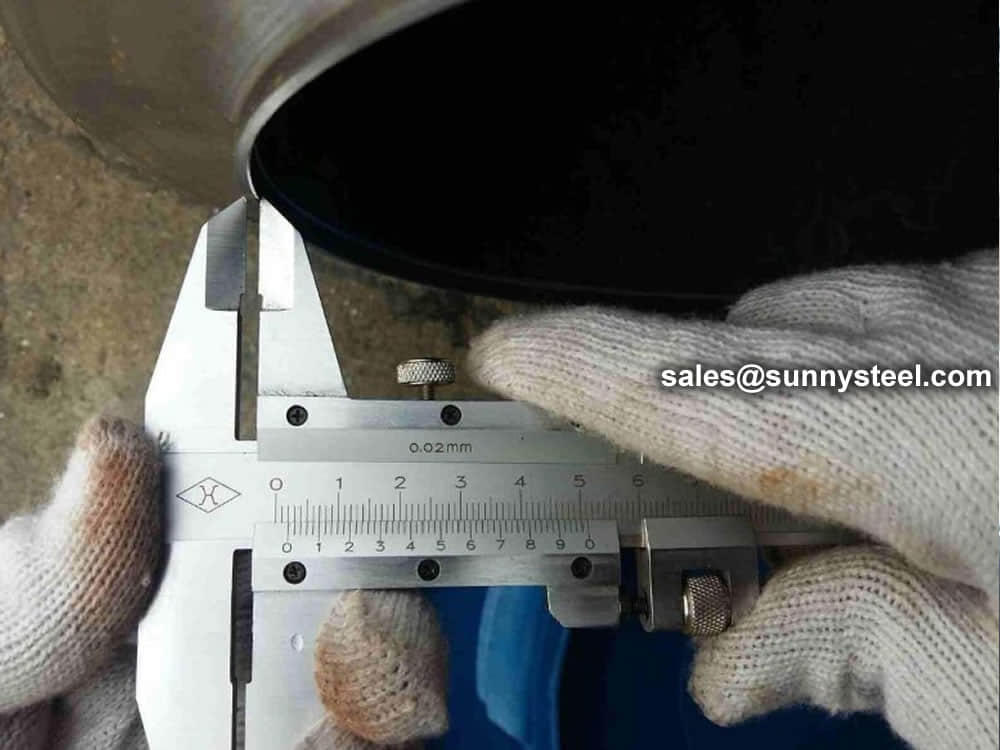
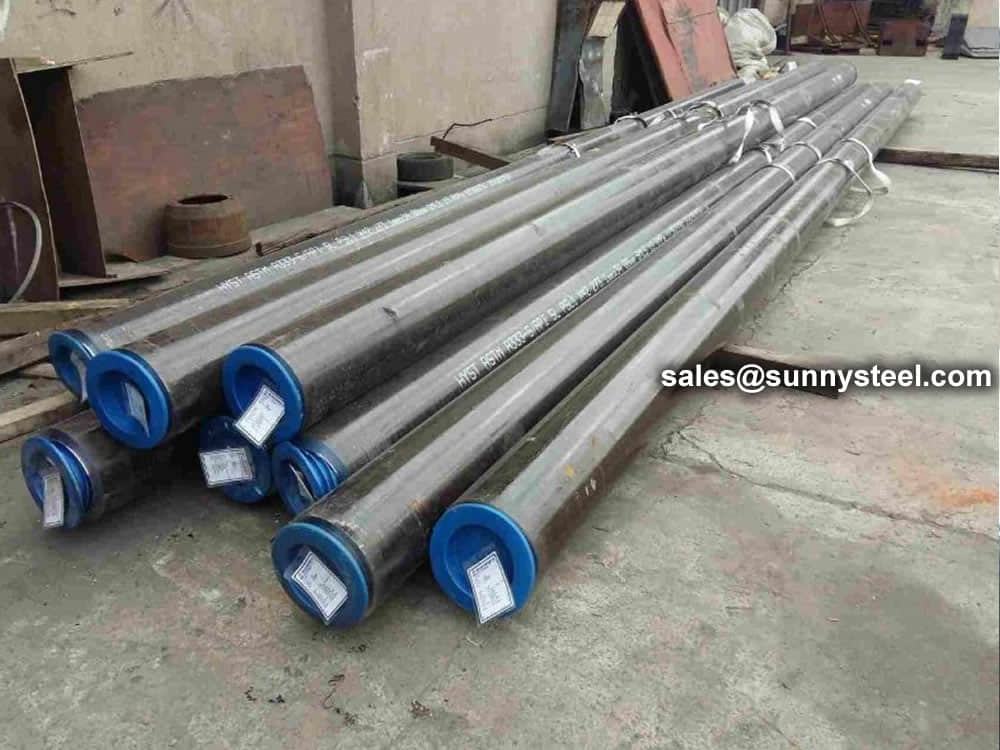
Steel pipe delivery status(condition): cold / hard (BK), cold / soft (BKW), after cold stress relief annealing (BKS), annealing (GBK), normalized (NBK).
| Term | Symbol | Explanation |
|---|---|---|
| Cold-finished/hard (cold-finished as-drawn) | BK | No heat treatment after the last cold-forming process. The tubes therefore have only low deformability. |
| Cold-finished/soft (lightly cold-worked) | BKW | After the last heat treatment there is a light finishing pass (cold drawing) With proper subsequent processing, the tube can be cold-formed (e.g. bent, expanded) within certain limits. |
| Annealed | GBK | After the final cold-forming process the tubes are annealed in a controlled atmosphere or under vacuum. |
| Normalized | NBK | The tubes are annealed above the upper transformation point in a controlled atmosphere or under vacuum. |
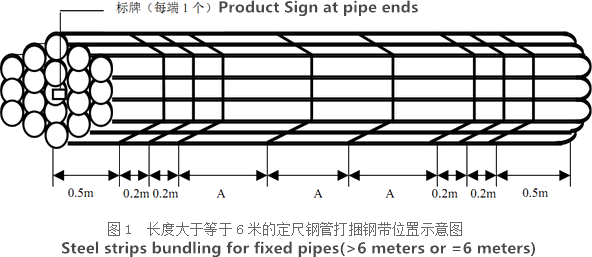
The general cold strip mills, volume should go through continuous annealing (CAPL unit) to eliminate cold hardening and rolling stress, or batch annealing reach the mechanical properties of the corresponding standard specifies. Cold rolled steel surface quality, appearance, dimensional accuracy better than hot-rolled plate, and right-rolled thin product thickness is about 0.18mm, so the majority of users favor.
Cold rolled steel coil substrate products deep processing of high value-added products. Such as electro-galvanized, hot dip galvanized, electro-galvanized fingerprint resistant, painted steel roll damping composite steel, PVC laminating steel plates, etc., so that the excellent quality of these products has a beautiful, high resistance to corrosion, has been widely used.
Cold rolled steel coil finishing after annealing, cut the head, tail, trimming, flattening, smooth, heavy volume, or longitudinal clipboard. Cold-rolled products are widely used in automobile manufacturing, household electrical appliances, instruments, switches, buildings, office furniture and other industries. Steel plate strapping package weight of 3 to 5 tons. Flat sub-volume typically 3 to 10 tons / volume. Coil diameter 6m.
Bare packing/bundle packing/crate packing/wooden protection at the both sides of tubes and suitably protected for sea-worthly delivery or as requested.
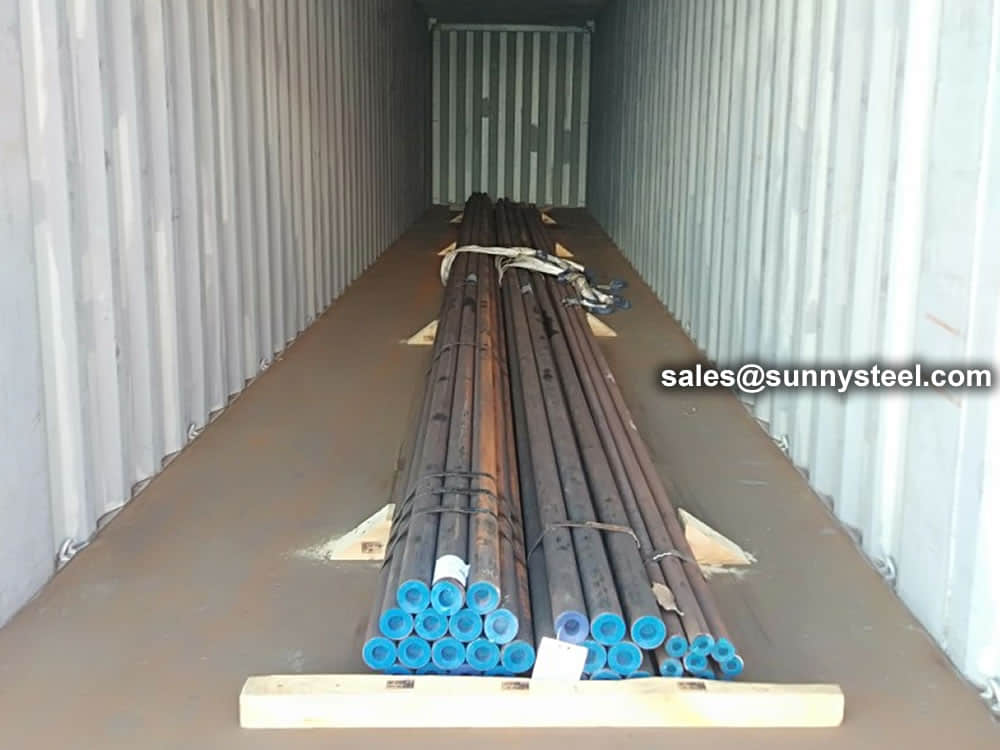
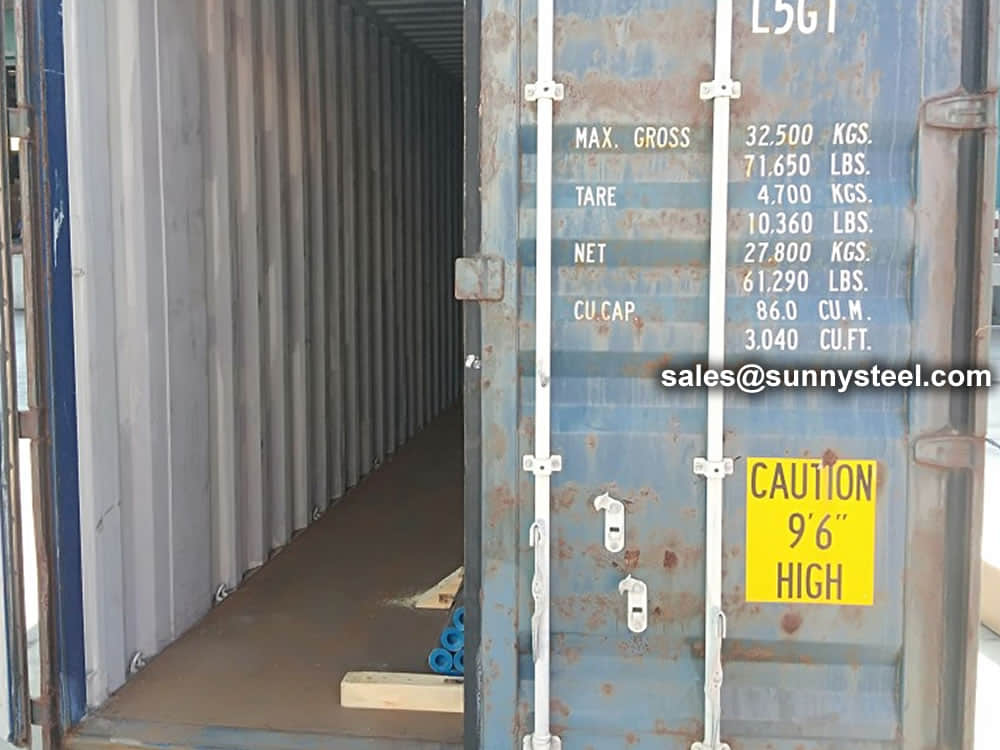
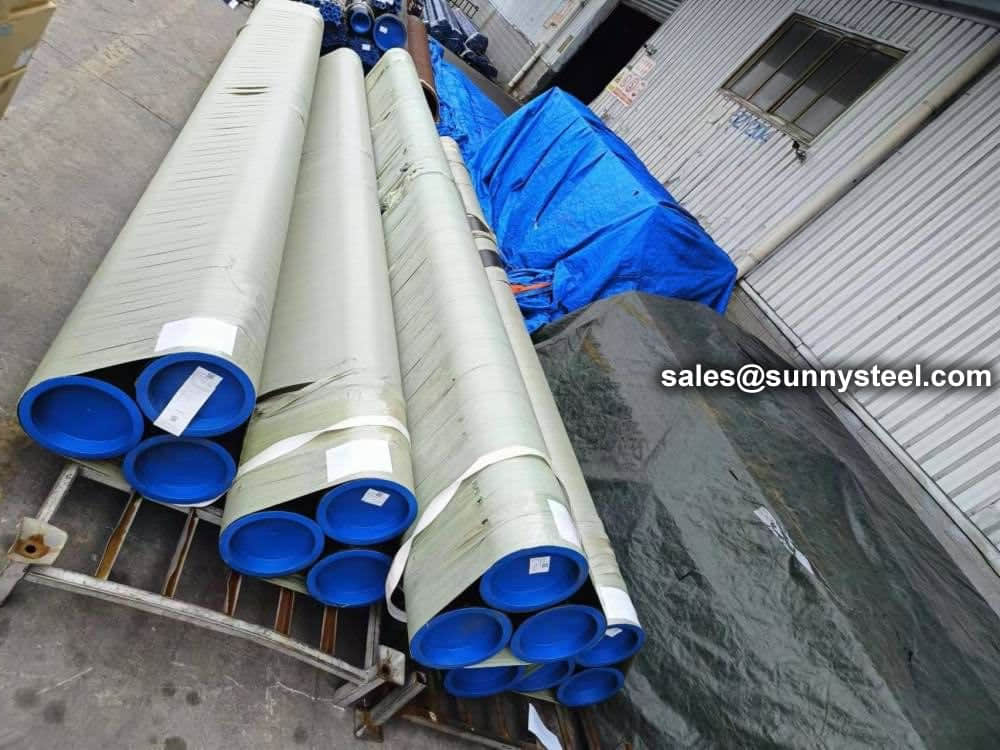
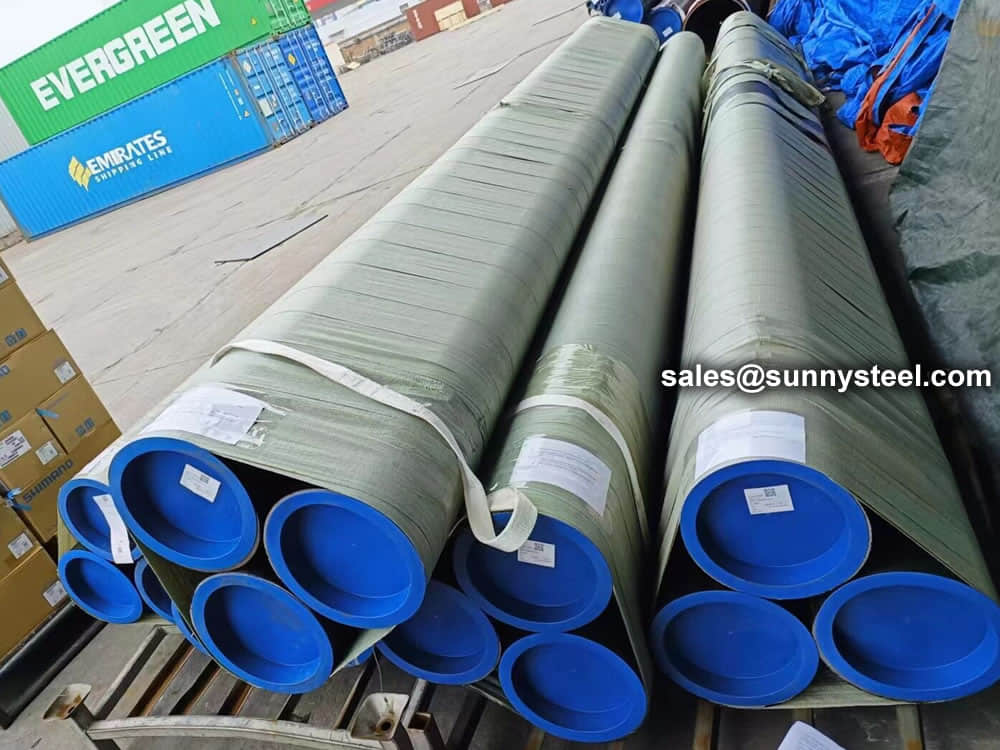
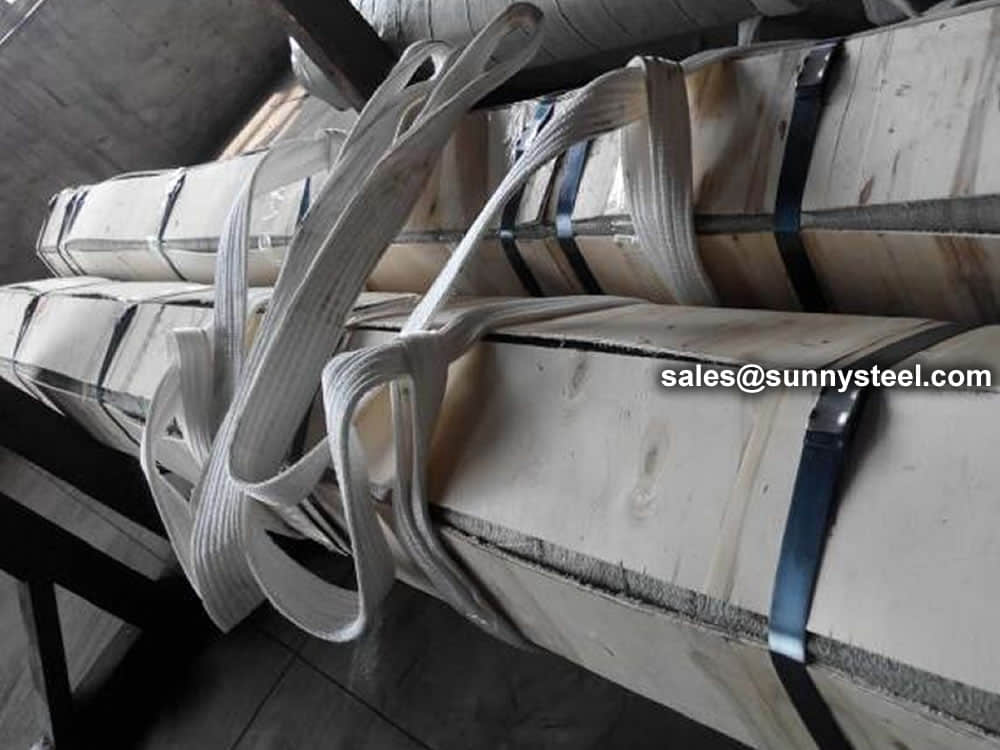
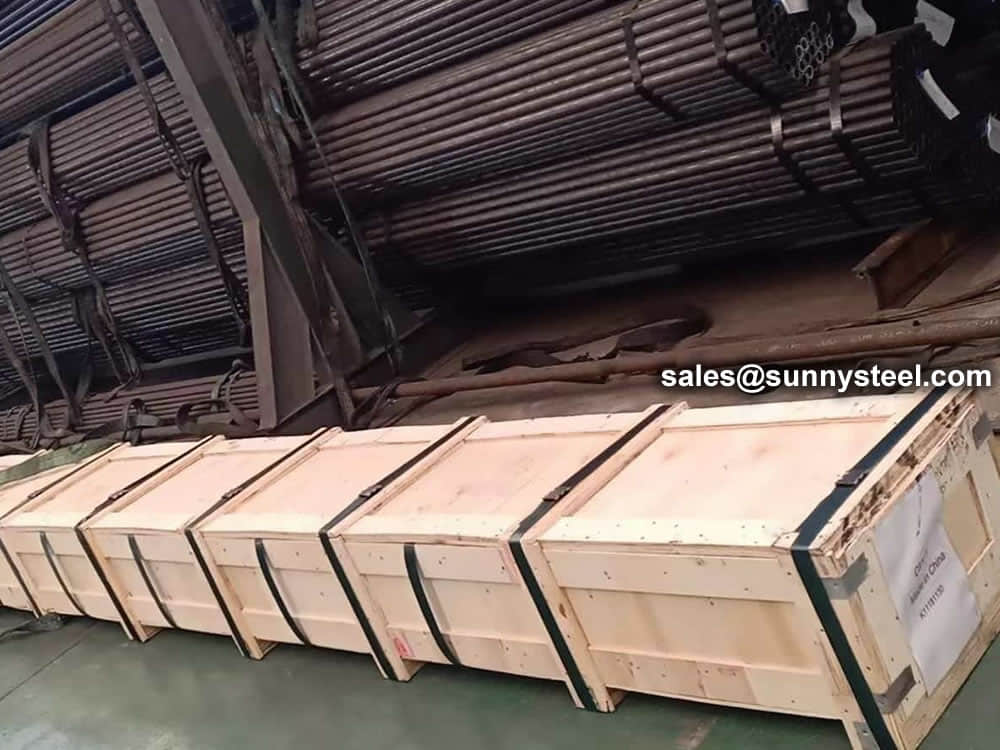
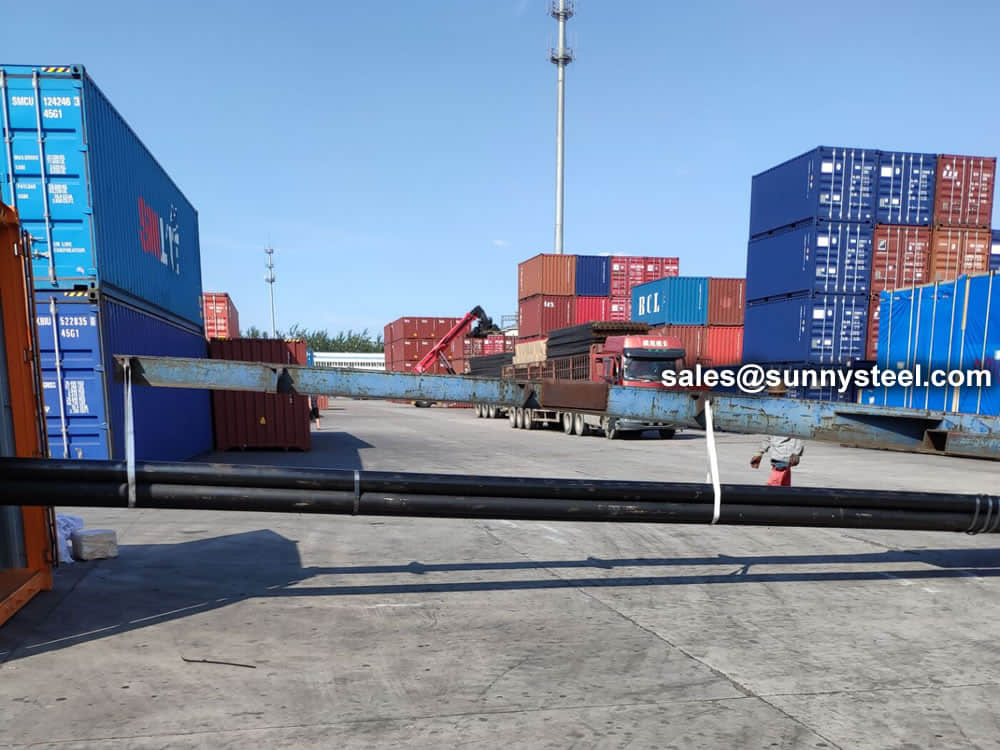
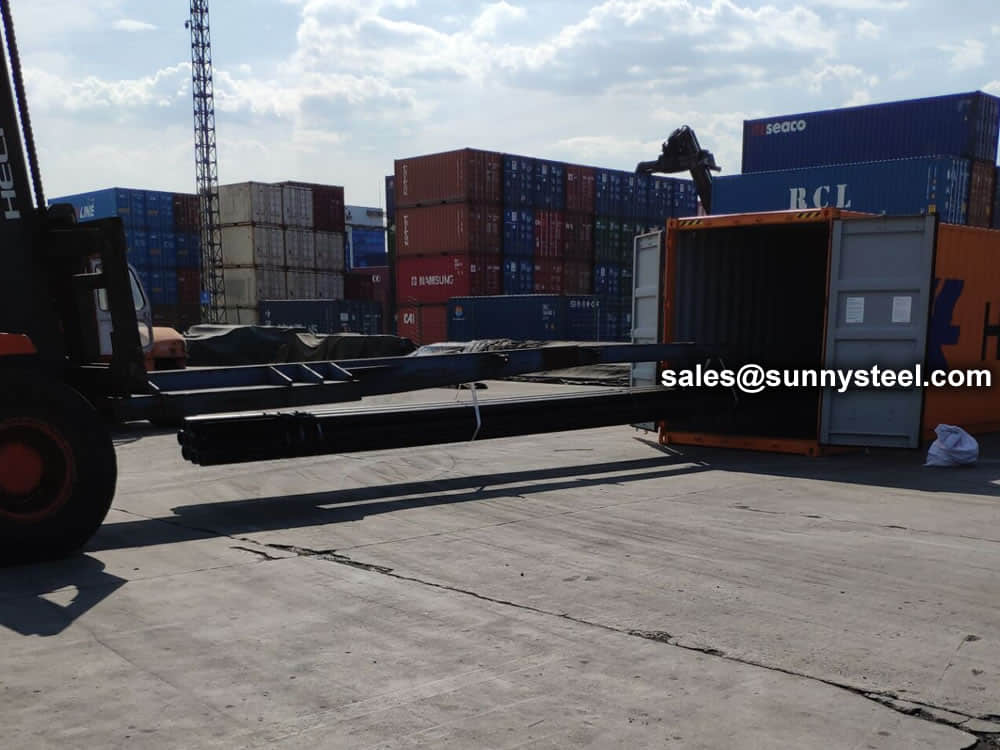
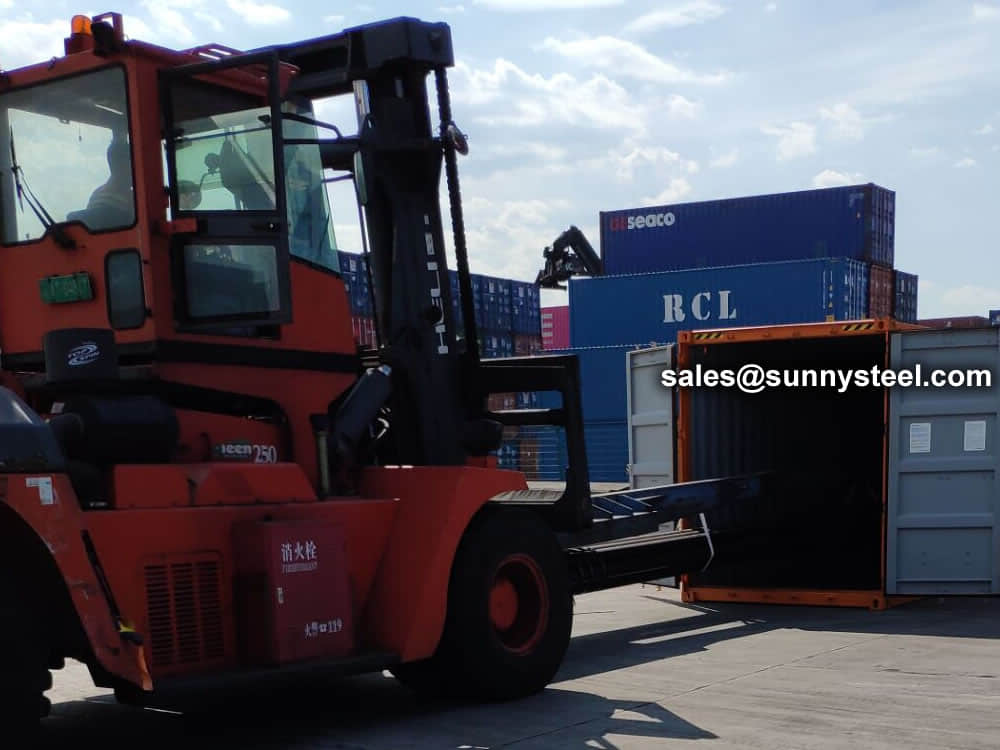
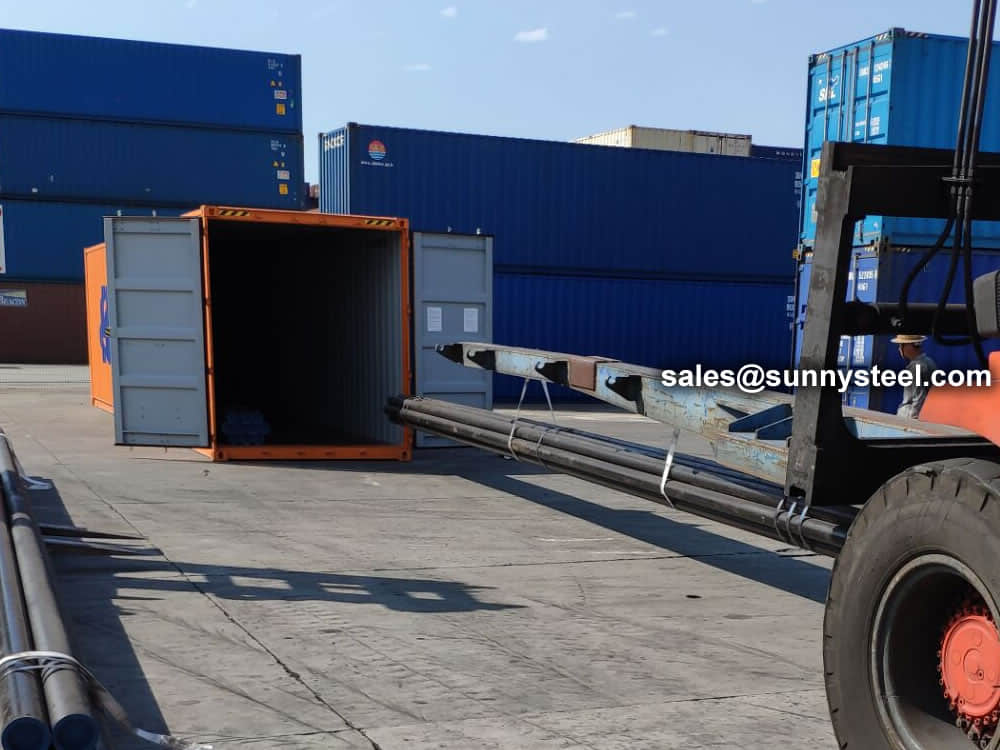
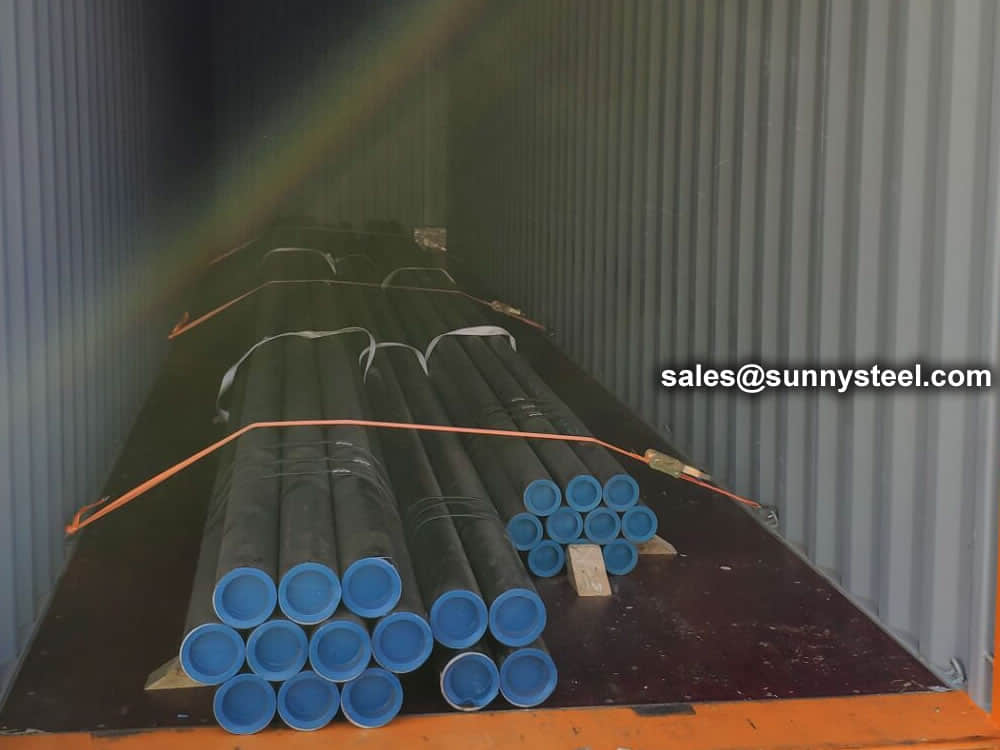
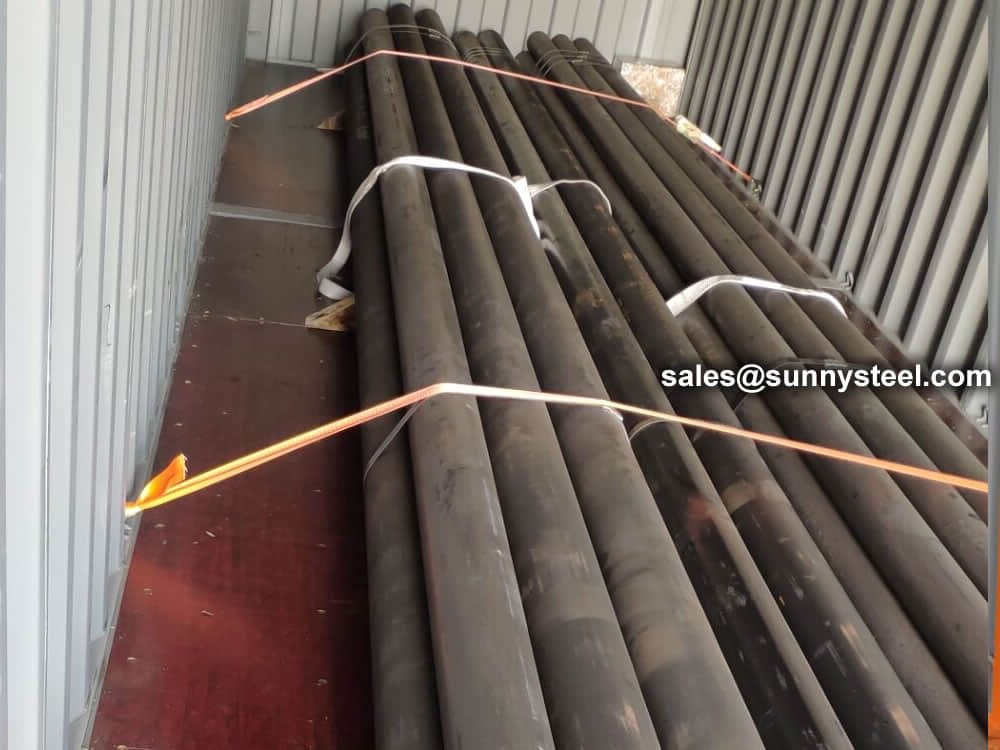
There are probably hundreds of different methods for packing a pipe, and most of them have merit, but there are two principles that are vital for any method to work prevent rusting and Sea transportation security.
Our packing can meet any needs of the customers.
Our team of experienced sales specialists proudly partners with gas and chemical processors, power generation plants, oil refineries, and related industries to offer piping components and value-added services.
Alloy steels are made by combining carbon steel with one or several alloying elements, such as manganese, silicon, nickel, titanium, copper, chromium and aluminum. These metals are added to produce specific properties that are not found in regular carbon steel. The elements are added in varying proportions (or combinations) making the material take on different aspects such as increased hardness, increased corrosion resistance, increased strength, improved formability (ductility); the weldability can also change.
Commonly used alloying elements and their effects are listed in the table given below.
| Alloying Elements | Effect on the Properties |
|---|---|
| Chromium | Increases Resistance to corrosion and oxidation. Increases hardenability and wear resistance. Increases high temperature strength. |
| Nickel | Increases hardenability. Improves toughness. Increases impact strength at low temperatures. |
| Molybdenum | Increases hardenability, high temperature hardness, and wear resistance. Enhances the effects of other alloying elements. Eliminate temper brittleness in steels. Increases high temperature strength. |
| Manganese | Increases hardenability. Combines with sulfur to reduce its adverse effects. |
| Vanadium | Increases hardenability, high temperature hardness, and wear resistance. Improves fatigue resistance. |
| Titanium | Strongest carbide former. Added to stainless steel to prevent precipitation of chromium carbide. |
| Silicon | Removes oxygen in steel making. Improves toughness. Increases hardness ability |
| Boron | Increases hardenability. Produces fine grain size. |
| Aluminum | Forms nitride in nitriding steels. Produces fine grain size in casting. Removes oxygen in steel melting. |
| Cobalt | Increases heat and wear resistance. |
| Tungsten | Increases hardness at elevated temperatures. Refines grain size. |

When you partner with Sunny Steel, you can stop worrying about meeting deadlines thanks to our responsive and timely service. You'll also say goodbye to unnecessary shopping around. Instead, you'll get white glove service from an expert who understands your needs and can get you the materials you need quickly.
